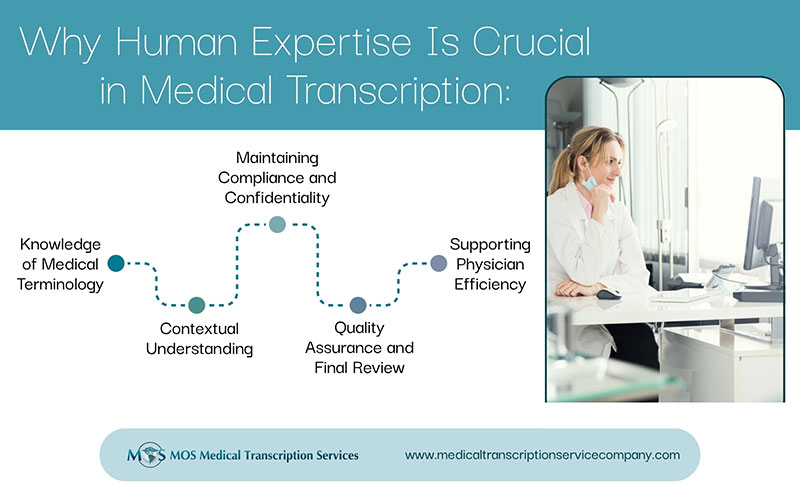 Clinical trials strive to find improved ways of preventing, screening for, diagnosing, or treating a disease, or comparing a new treatment to an existing treatment. Good documentation practices to maintain supporting or source data such as case histories and record retention are critical for clinical trials. Source documentation comprises the medical record of the subject before, during and after the trial. Medical transcription companies provide valuable services for documenting supporting or source data.
Clinical trials strive to find improved ways of preventing, screening for, diagnosing, or treating a disease, or comparing a new treatment to an existing treatment. Good documentation practices to maintain supporting or source data such as case histories and record retention are critical for clinical trials. Source documentation comprises the medical record of the subject before, during and after the trial. Medical transcription companies provide valuable services for documenting supporting or source data.
The Dana-Faber/Harvard Cancer Center recommends the following best practices throughout the clinical trial. Here’s a brief look at what constitutes these best practices:
- Maintaining adequate records: The researchers should maintain adequate and accurate case histories. Protocol-required procedures should be properly documented.
- Accuracy when recording information for the first time: According to ICH good clinical practice guidelines, the true source is where the information is first written – in the medical record, a source worksheet or a post-it note.
- Ensure comprehensive and verifiable data: The ICH E6 document defines source documents as original documents, data and records. This includes hospital records, clinical and office charts, laboratory notes, memoranda, subjects’ diaries of evaluation checklists, pharmacy dispensing records, recorded data from automated instruments, copies or medical transcription certified after verification as being accurate and complete. It also includes microfiches, photographic negatives, microfilm or magnetic media, x-rays, subject files, and records kept at the pharmacy, at the laboratories, and at medico-technical departments involved in the clinical trial.
- Corrections: If corrections are made to source documents and CRFs, they should be lined through, initialed and dated. White-out should never be used.
- Retain all original documents: Original documents should never be destroyed.
- Secure and accessible study records: As allpatient information is subject to HIPAA and HITECH rules, access to the study records should be limited to the research team and kept in a safe place.
A HIPAA-compliant medical transcription company plays an important role in helping clinical researchers maintain accurate and verifiable source data and documents. With a qualified team of transcriptionists well-versed in medical terminology and jargon, they provide quality transcription of patient assessment, admission notes, history and physical notes, or consultation notes with 99% accuracy and in quick turnaround time. Sensitive to the rules related to safeguarding patient identities and protecting the rights of individuals and their health information, these companies have high security standards in place to ensure the confidentiality of the data entrusted to them for transcription.
Adherence to good documentation practices are crucial to ensure that the clinical study results are built on the foundation of credible and valid data.


